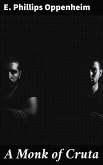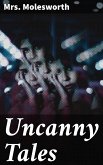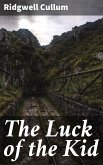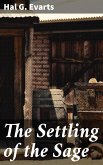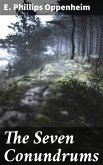In "At a Winter's Fire," Bernard Edward Joseph Capes masterfully weaves a narrative rich in Gothic elements and evocative imagery, enveloping readers in the intimate warmth of storytelling by the fireside. This collection of short tales explores themes of love, loss, and the supernatural, set against the backdrop of winter'Äôs chill. Capes'Äôs prose is imbued with poetic elegance, capturing the eerie ambiance that characterizes each story while inviting readers to reflect on the deeper human experiences concealed within them. The work reflects the Victorian era's fascination with the macabre and the ethereal, positioning it within the broader context of Gothic literature and pub culture of the time. Capes, an author and playwright influenced by the tumultuous socio-political landscape of the late 19th century, possessed a profound understanding of the human psyche. His diverse background, stemming from family tragedies and a penchant for theatricality, fueled his literary endeavors, allowing him to channel personal experiences into his fictional landscapes. His unique perspective shapes the nuanced characters and haunting atmospheres that inhabit these tales, revealing the delicate interplay between reality and imagination. This book is a must-read for enthusiasts of Gothic literature and anyone who appreciates beautifully crafted narratives that provoke introspection. Capes'Äôs ability to conjure immersive worlds with rich symbolism makes this collection not only a delightful winter read but also a profound exploration of human emotion. Readers seeking a blend of chilling intrigue and heartfelt reflection will find "At a Winter's Fire" a compelling addition to their literary repertoire.
Dieser Download kann aus rechtlichen Gründen nur mit Rechnungsadresse in A, B, BG, CY, CZ, D, DK, EW, E, FIN, F, GR, H, IRL, I, LT, L, LR, M, NL, PL, P, R, S, SLO, SK ausgeliefert werden.
Hinweis: Dieser Artikel kann nur an eine deutsche Lieferadresse ausgeliefert werden.





